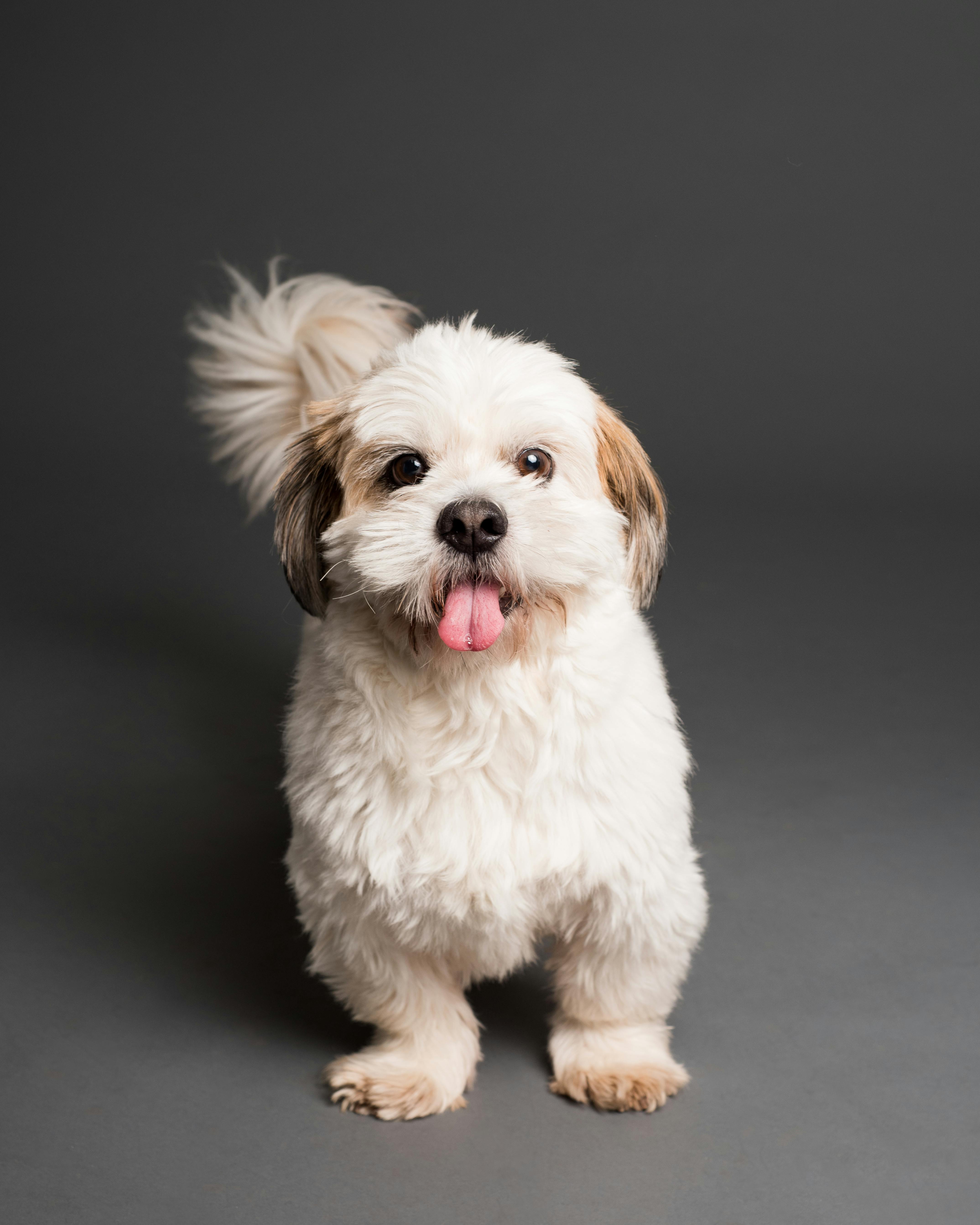Socializing Your Puppy: Why and How to Do It Right
Puppy socialization is arguably the most important foundation you can provide for your growing dog. A well-socialized puppy becomes a confident, friendly adult dog capable of handling new situations with calm assurance. Conversely, puppies that miss critical socialization windows often develop fear, anxiety, and behavioral problems that persist into adulthood. Understanding why and how to practice puppy socialization ensures your puppy develops into a well-adjusted, socially competent companion. This comprehensive guide explores the science of socialization and provides practical strategies for successful early socialization for puppies.
Understanding Puppy Socialization: What It Is and Why It Matters
Puppy socialization is the process of exposing your puppy to a wide variety of people, animals, environments, sounds, and experiences in a positive, controlled manner. It's not simply about making your puppy friendly—it's about building confidence and preventing fear-based behaviors.
The Critical Socialization Window
Puppies have a critical period for socialization roughly between 3 and 14 weeks of age. During this window, puppies are naturally more open to new experiences and less fearful. Positive experiences during this period have lasting effects on adult behavior. While socialization remains beneficial throughout puppyhood and beyond, the early window offers unique opportunities.
After 14 weeks, puppies become more cautious about unfamiliar situations. What was easily accepted at 8 weeks might trigger fear at 16 weeks. This doesn't mean socialization becomes impossible after the window closes, but it becomes more challenging and requires more repetitions to achieve the same results.
Long-Term Benefits of Proper Puppy Socialization
Puppies receiving adequate early socialization for puppies typically exhibit:
- Greater confidence: Socialized puppies approach new situations with curiosity rather than fear
- Better coping mechanisms: Exposed puppies handle stress and change more effectively
- Improved adaptability: Socialized dogs adjust more easily to new homes, traveling, and life changes
- Reduced behavior problems: Fear-based aggression and anxiety disorders are less common
- Better social skills: Properly socialized dogs interact appropriately with other dogs and people
- Enhanced trainability: Confident dogs typically learn new commands and behaviors more readily
- Healthier stress responses: Socialized puppies recover from frightening experiences more quickly

Positive early experiences build confident, well-adjusted adult dogs
Key Areas of Puppy Socialization
Comprehensive puppy socialization addresses multiple categories of experience.
People Socialization
Expose your puppy to diverse people including children, elderly individuals, people with disabilities, people of different ethnicities, and people in different clothing or uniforms. This prevents puppies from developing fear of specific groups. Include positive interactions with strangers, delivery personnel, veterinarians, and grooming professionals.
Ensure interactions are genuinely positive—never force your puppy to approach people they seem uncomfortable with. Allow your puppy to approach at their own pace and reward positive interactions.
Animal Socialization
Exposure to other dogs is crucial for developing appropriate canine social skills. Well-socialized puppies learn how to read dog body language, play appropriately, and communicate clearly with other dogs. Similarly, exposure to cats, rabbits, and other animals prevents predatory responses and builds acceptance.
Arrange controlled meetings with vaccinated, friendly adult dogs. Puppy kindergarten classes offer ideal environments for safe peer interaction.
Environmental Socialization
Introduce your puppy to diverse environments: urban streets with traffic and crowds, parks, beaches, farms, vehicles, and public spaces. Each environment presents new sights, sounds, and smells that build adaptive capacity.
Variety in socialization locations is crucial. A puppy socialized only at their home hasn't experienced the world broadly and may develop environment-specific fears.
Sound Socialization
Expose your puppy to various sounds: traffic noise, thunderstorms, fireworks, vacuum cleaners, power tools, doorbells, and alarm sounds. Puppies not exposed to normal environmental sounds often develop noise phobias, especially around fireworks and storms.
Start with moderate volumes and gradually increase as your puppy becomes comfortable. Pair sounds with positive associations like treats and play.
Activity and Experience Socialization
Include diverse experiences: car rides, veterinary visits, grooming, bathing, nail trimming, different flooring surfaces, stairs, and various play activities. These experiences build confidence and prepare your puppy for adult life necessities.

Dog-to-dog socialization teaches appropriate canine communication and social skills
Creating a Puppy Socialization Checklist
A structured puppy socialization checklist ensures comprehensive exposure across critical areas.
People to Meet (Before 16 Weeks)
- Children of various ages (infants through teenagers)
- Adults of both sexes
- Elderly individuals
- People with disabilities or using mobility aids
- People of diverse ethnicities and backgrounds
- People in uniforms (mail carriers, police, security)
- Healthcare professionals and veterinarians
- Grooming professionals
Animals to Meet
- Other vaccinated, friendly puppies
- Adult dogs of various sizes and temperaments
- Cats
- Rabbits or other small animals
- Horses (if available and feasible)
- Other animals your adult dog might encounter
Environments to Experience
- Urban streets and sidewalks
- Parks and green spaces
- Pet stores (if allowed)
- Outdoor markets or public spaces
- Vehicles and car rides
- Stairs and elevators
- Different flooring types (carpet, tile, wood, gravel)
- Water (shallow, calm water environments)
Sounds to Hear
- Traffic and vehicle noise
- Construction and power tools
- Vacuum cleaners and household appliances
- Doorbells and alarm sounds
- Thunder and rain sounds
- Crowds and human noise
- Music and speakers
- Fireworks or similar loud noises (at lower volumes initially)
Best Practices for Puppy Socializing Tips
How you conduct socialization matters as much as what you expose your puppy to.
Always Maintain Positive Associations
Never force your puppy into uncomfortable situations. Positive socialization means your puppy chooses to explore at their own pace while experiencing good outcomes. Forcing frightening experiences creates trauma rather than socialization.
Use High-Value Rewards Generously
Bring special treats during socialization outings. Reward calm, curious behavior liberally. Your puppy learns that new experiences result in wonderful things happening, building enthusiasm for future exposures.
Keep Early Sessions Short
Puppies tire quickly. Fifteen to twenty-minute socialization sessions are often more effective than longer outings. Short, positive experiences build enthusiasm better than extended sessions that overwhelm young puppies.
Respect Your Puppy's Pace
Some puppies are naturally bold while others are more cautious. Both are normal. Allow naturally cautious puppies longer to warm up to new experiences. Force and rushing often backfire, creating fear rather than confidence.
Ensure Puppy Health During Socialization
Before exposing your puppy to other dogs or public spaces, confirm they've received appropriate vaccinations. Consult your veterinarian about safe socialization timelines for your specific puppy and local disease prevalence.
Continue Socialization Throughout Puppyhood
While the 3-14 week window is critical, continue exposing your puppy to new experiences throughout their first year. Additional experiences during months 4-12 reinforce earlier learning and introduce new situations.
Managing Socialization Challenges
Some puppies face obstacles to ideal socialization. Strategies help overcome common challenges.
Health Constraints During Vaccine Series
Puppies typically need multiple vaccine rounds before safely interacting with unknown dogs or heavily used public spaces. During this period, socialize in low-risk environments: your home and yard, friends' homes, and controlled settings. Once fully vaccinated, increase exposure gradually.
Late Arrivals Missed Critical Window
If your puppy is older than 16 weeks when you receive them, they've missed optimal early socialization. You can still conduct socialization, but expect slower progress and more repeated exposures. Patience and persistence still yield positive results.
Previously Under-Socialized or Rescue Puppies
Puppies from neglectful backgrounds may show significant fear despite being young enough for socialization. Progress often requires professional help. Veterinary behaviorists and certified trainers specializing in fear can provide crucial guidance.
Fear or Anxiety During Socialization
If your puppy shows genuine fear, retreat to a safer distance and proceed more slowly. Forcing fearful puppies through situations damages trust and increases anxiety. Counter-conditioning and desensitization—gradual exposure combined with positive associations—addresses fear-based resistance.
Common Mistakes in Puppy Socialization
Understanding what not to do prevents setbacks in socialization efforts.
Overwhelming Your Puppy
Too many new experiences too quickly causes stress rather than confident adaptation. Balance novel experiences with quiet time for processing. Overstimulation exhausts puppies and creates negative associations.
Missing the Critical Window
While some socialization is always beneficial, missing the 3-14 week window means missing optimal developmental timing. While less ideal, beginning socialization later is still worthwhile but requires more effort.
Assuming Previous Socialization is Complete
Even well-socialized puppies face new situations throughout adulthood. Continuing exposure to novel experiences throughout puppyhood prevents regression and builds ongoing adaptability.
Neglecting Desensitization to Essential Experiences
Some experiences, like veterinary handling and grooming, are essential but potentially stressful. Beginning desensitization early prevents adult anxiety around these necessary procedures.
Ignoring Signs of Genuine Fear
Not all puppy hesitation is overcome by forcing exposure. Genuine fear responses (trembling, attempts to escape, freezing) require different approaches than normal caution. Ignoring genuine fear worsens anxiety.
Age-Specific Socialization Considerations
Socialization approaches adjust based on puppy age and developmental stage.
Very Young Puppies (8-12 Weeks)
The window for maximum openness is beginning to close by 12 weeks. Prioritize this period for diverse exposures. Young puppies are naturally less fearful, making new experiences easier to navigate positively.
Growing Puppies (12-16 Weeks)
This is the final phase of peak socialization responsiveness. Consolidate earlier experiences and introduce new exposures you haven't yet covered. After 16 weeks, the window begins closing more definitively.
Adolescent Puppies (4-6 Months)
Socialization remains beneficial but requires more repetitions and careful management. Continue introducing novel experiences but expect more caution than in earlier puppyhood. This stage requires patience and positive reinforcement.
Older Puppies (6-12 Months)
Socialization continues through the first year, but early programming is largely set. This period reinforces previous learning and introduces new experiences that adult dogs will encounter.
Building a Village: Socialization Resources and Support
Successful puppy socialization often benefits from community support and structured resources.
Puppy Kindergarten Classes
Structured puppy classes provide supervised dog-to-dog socialization combined with basic training. Instructors can guide socialization and address emerging behavioral concerns.
Dog Parks and Socialization Outings
Public spaces offer diverse environmental and social exposures. Supervise carefully and leave if interactions become problematic. Quality matters more than quantity—one positive session is better than exposure to negative interactions.
Friends and Family Involvement
Enlist your social network in socialization efforts. Different people handling, holding, and interacting with your puppy provides varied social exposure and teaches your puppy comfort with diverse humans.
Professional Training and Behavior Support
Certified trainers and veterinary behaviorists can provide guidance on optimal socialization strategies for your specific puppy and help address emerging behavioral concerns.
Conclusion: Investing in Your Puppy's Future
Puppy socialization is one of the most important investments you can make in your dog's lifelong wellbeing and happiness. Puppies receiving adequate early socialization for puppies become confident, well-adjusted adults capable of thriving in diverse situations. They experience less anxiety, develop fewer behavior problems, and build stronger bonds with their human families.
By following a comprehensive puppy socialization checklist, implementing practical puppy socializing tips, and maintaining realistic expectations about your puppy's developmental timeline, you'll build a strong foundation for your dog's entire life. Remember that quality of experience matters more than quantity—thoughtful, positive exposures create lasting benefits.
The critical window for puppy socialization is relatively brief, roughly 3-14 weeks of age. During this time, leverage your puppy's natural openness to new experiences. Continue socialization throughout puppyhood and beyond, reinforcing early learning and introducing new experiences your adult dog will encounter.
Start today with patience, positive associations, and realistic goals. Your dedication during these crucial early weeks creates a confident, capable dog that enjoys a full, rich life. A well-socialized puppy is a gift to yourself, your family, and your community—make the investment now in your puppy's socialization.
Related Articles
For more information on puppy training and development, explore these related topics:
- Puppy Training Basics: Getting Started Right
- Crate Training for Puppies: Best Practices That Work
- How to Stop Puppy Biting: Safe and Proven Methods
- Common Puppy Behavior Issues and How to Fix Them
- Puppy Health Care: Vaccinations and Preventative Care
- Teach Your Dog to Sit and Stay: Positive Reinforcement Techniques







No comments:
Post a Comment